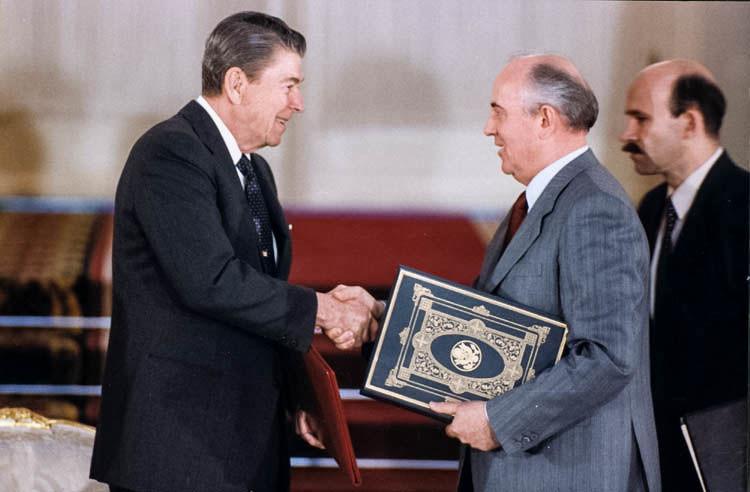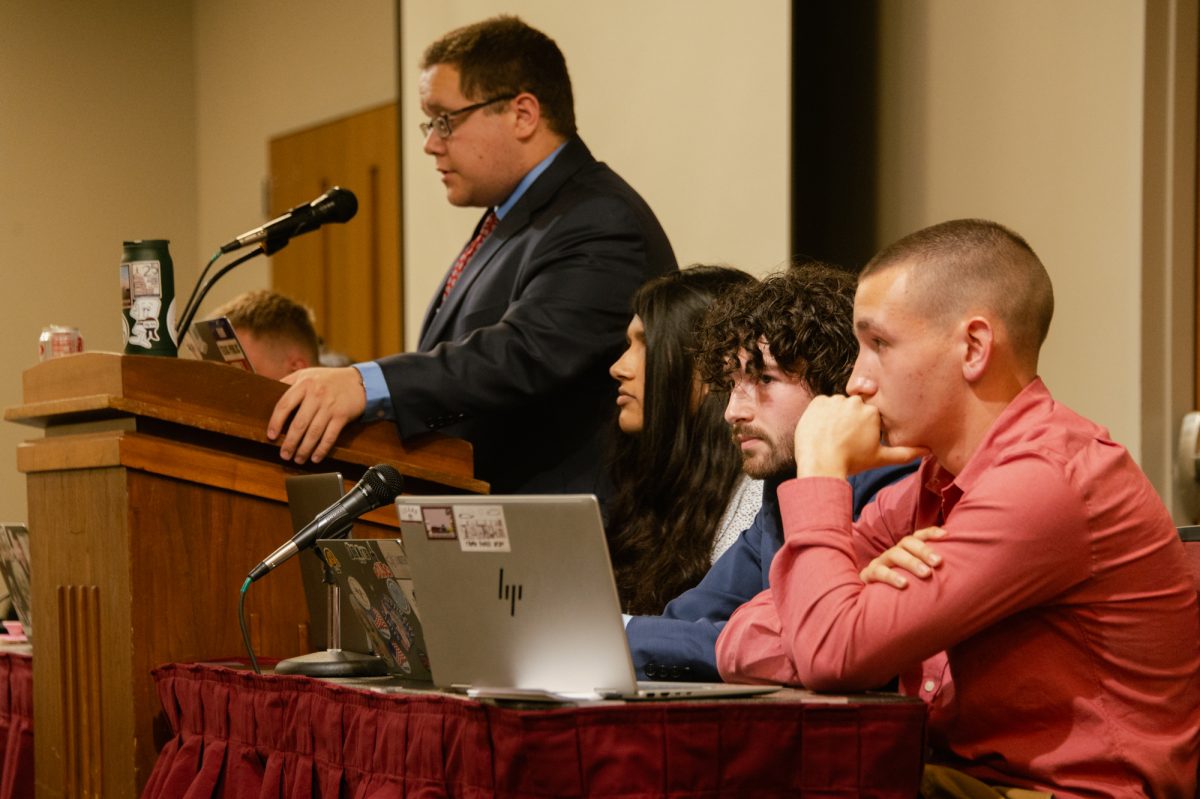On Feb. 1, the U.S. announced official withdrawal from the Intermediate-Range Nuclear Forces Treaty. However, U.S. allies and citizens are uncertain of the effect of this discontinuation, and some are fearful of the direction this route will take them as the U.S. and Russia now have five months to renew the treaty before it is legally terminated.
The development of nuclear weapons in 1945 brought tremendous shock and fear to the international environment. Armaments of this force were regulated, but it wasn’t until 1968 that the Non-Proliferation Treaty was signed, and a general consensus advocated for stopping the spread of nuclear weaponry.
In 1987, the U.S. and Russia signed the INF Treaty, in which both parties agreed to eliminate large parts of their nuclear arsenals. The treaty was signed to further ensure stability, according to director of the graduate program of political science Matthew Fuhrmann.
“To be understood in a broader context, certain weapons can be seen as destabilizing or offensive,” Fuhrmann said. “One of the greatest fears in a world with nuclear weaponry is the possibility of attack due to miscalculation or accident. U.S. and Soviet officials saw the INF treaty as a way to reduce this danger.”
Short and intermediate-range weapons allowed for decreased response time and forced nations to make quick decisions about how to respond to a perceived threat.
It is for this reason that both the U.S. and the USSR decided to withdraw some of their weapons to eliminate the need to make this decision, reducing the possibility of retaliation due to miscalculation.
However, this was not the only motivation for disarmament, as European powers also had a say in the matter, said associate professor of political science Michael Koch.
“Throughout the 1980s, European politics had increasingly built up resentment toward the idea of nuclear weaponry and advocated against continuation of U.S. weapons in European territory for defensive purposes,” Koch said.
Both international security and European sentiments led to the signing of the INF Treaty in 1987. Commitment to this treaty endured for over 20 years, but shortcomings began to develop during Barack Obama’s second term, said director of the certificate in national security affairs Andrew Ross.
“The U.S. had been protesting the Russian violation of the treaty due to their deployment of an intermediate-range, land-based cruise missile,” Ross said. “However, Russia claimed their launch was below the range of agreement of 500 kilometers, but the U.S. was not buying this and viewed it as a violation of the treaty.”
While this was a catalyzing event that eventually had a hand in withdrawal, the Trump administration was the first to take formal action. Due to suspected Russian contravention of the treaty, allies and government officials anticipated withdrawal.
Therefore, the issue did not lie within the actual decision for disengagement, but rather the communication of the decision. Koch said Trump’s decision to announce departure on the campaign trail before informing important leaders and allies amounted to diplomatic malpractice.
“It really was a rational move to withdraw from the treaty; there’s no point in staying in something if the other country is not following it,” Koch said. “But deciding to leave key congress members and allies out of the loop presented communication issues. It was less the outcome that was under criticism and more so how the outcome was presented.”
While the U.S. and Russia both still have five months to renegotiate, the chances of this are unlikely, Fuhrmann said.
“The horse has already left the barn because the intention to withdraw has already been announced,” Fuhrmann said. “The preferred option would have been to expend more diplomatic capital to make it clear Russia was to blame. Because we haven’t decided to act in this way, we have presented ourselves to the world as culpable for the collapse of the treaty.”
Mainly, the issue at hand was not withdrawal itself, but how the U.S. decided to go about it. Ross said U.S. leaders failed to communicate effectively, they have exacerbated a preexisting issue with Russia and with how the U.S. is viewed by its European allies.
“The White House does not care about what Europeans think about us,” Ross said. “How we are handling our allies not only nuclearly but economically is just stupid. If we continue in diplomatic interactions like this, we are heading down the wrong road, and we’re going to regret that.”
Exit from nuclear treaty raises questions
March 4, 2019
Photo by Creative Commons
President Ronald Reagan and Soviet General Secretary Mikhail Gorbachev signed the INF Treaty in 1987.
0
Donate to The Battalion
$2065
$5000
Contributed
Our Goal
Your donation will support the student journalists of Texas A&M University - College Station. Your contribution will allow us to purchase equipment and cover our annual website hosting costs, in addition to paying freelance staffers for their work, travel costs for coverage and more!
More to Discover










